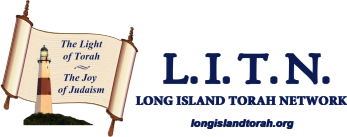The candles are placed in the Menorah from right to left, and they are kindled from left to right.
Before it is lit, the Menorah should be placed in the location where it will remain for the evening.
Before kindling the Menorah, we recite two blessings, each beginning with the standard formula Baruch Atta …… Melech Ha’olam….:
1)…..asher kidshanu bemitzvosav vetzivanu lehadlik Ner shel Chanukah.
2)…..she’asah nissim la’avoseinu bayamim haheim bazman hazeh.
On the first night only, we also add a third blessing:
3) …...shehecheyanu vekiymanu vehigianu lazman hazeh.
The Mitzvah of lighting the Menorah applies equally to men and women. At least one Menorah is kindled in every home; in many communities, every member of the household lights a Menorah of their own. (Sephardic and Ashkenazic customs vary in this regard, and each household should follow their tradition.) All agree that a couple is considered one unit, and a wife need not light if her husband does so (although she may light her own Menorah if she so desires). If the husband will not light at home (e.g. he is away), the wife IS required to light the Menorah herself.
Candles should be lit at nightfall - approximately 5:00 PM - except for Friday, when the candles must be lit before sunset (ideally, around 4:15 PM). On Saturday nights, we do not light the Menorah until the emergence of “three stars” - around a half-hour later than the regular time.
If one cannot light the Menorah at nightfall, one may do so later in the evening. If it is late at night and there is no one awake in the house, one should light without reciting the blessings.
The Chanukah candles must be long enough to burn for at least a half-hour. If they burn out before that, one should re-light the Menorah without reciting the blessings. On Friday night one may NOT re-light the Menorah.
On Friday afternoon, the Menorah should be lit before the Shabbos candles, and should contain enough fuel to burn for approximately an hour and a half. Ordinary Chanukah candles should not be used - oil, large-size “Shabbos candles” or tealights are appropriate. If using large candles is too difficult, one may light a single large candle, and use ordinary small candles for the remainder.
It is forbidden to use the light of the Chanukah candles for personal benefit. It is permissible to benefit from the Shamash.
Adapted from an article by Rabbi Yoel Adelman, Young Israel of Huntington
Click here to open a printable pdf of this page
Before it is lit, the Menorah should be placed in the location where it will remain for the evening.
Before kindling the Menorah, we recite two blessings, each beginning with the standard formula Baruch Atta …… Melech Ha’olam….:
1)…..asher kidshanu bemitzvosav vetzivanu lehadlik Ner shel Chanukah.
2)…..she’asah nissim la’avoseinu bayamim haheim bazman hazeh.
On the first night only, we also add a third blessing:
3) …...shehecheyanu vekiymanu vehigianu lazman hazeh.
The Mitzvah of lighting the Menorah applies equally to men and women. At least one Menorah is kindled in every home; in many communities, every member of the household lights a Menorah of their own. (Sephardic and Ashkenazic customs vary in this regard, and each household should follow their tradition.) All agree that a couple is considered one unit, and a wife need not light if her husband does so (although she may light her own Menorah if she so desires). If the husband will not light at home (e.g. he is away), the wife IS required to light the Menorah herself.
Candles should be lit at nightfall - approximately 5:00 PM - except for Friday, when the candles must be lit before sunset (ideally, around 4:15 PM). On Saturday nights, we do not light the Menorah until the emergence of “three stars” - around a half-hour later than the regular time.
If one cannot light the Menorah at nightfall, one may do so later in the evening. If it is late at night and there is no one awake in the house, one should light without reciting the blessings.
The Chanukah candles must be long enough to burn for at least a half-hour. If they burn out before that, one should re-light the Menorah without reciting the blessings. On Friday night one may NOT re-light the Menorah.
On Friday afternoon, the Menorah should be lit before the Shabbos candles, and should contain enough fuel to burn for approximately an hour and a half. Ordinary Chanukah candles should not be used - oil, large-size “Shabbos candles” or tealights are appropriate. If using large candles is too difficult, one may light a single large candle, and use ordinary small candles for the remainder.
It is forbidden to use the light of the Chanukah candles for personal benefit. It is permissible to benefit from the Shamash.
Adapted from an article by Rabbi Yoel Adelman, Young Israel of Huntington
Click here to open a printable pdf of this page

